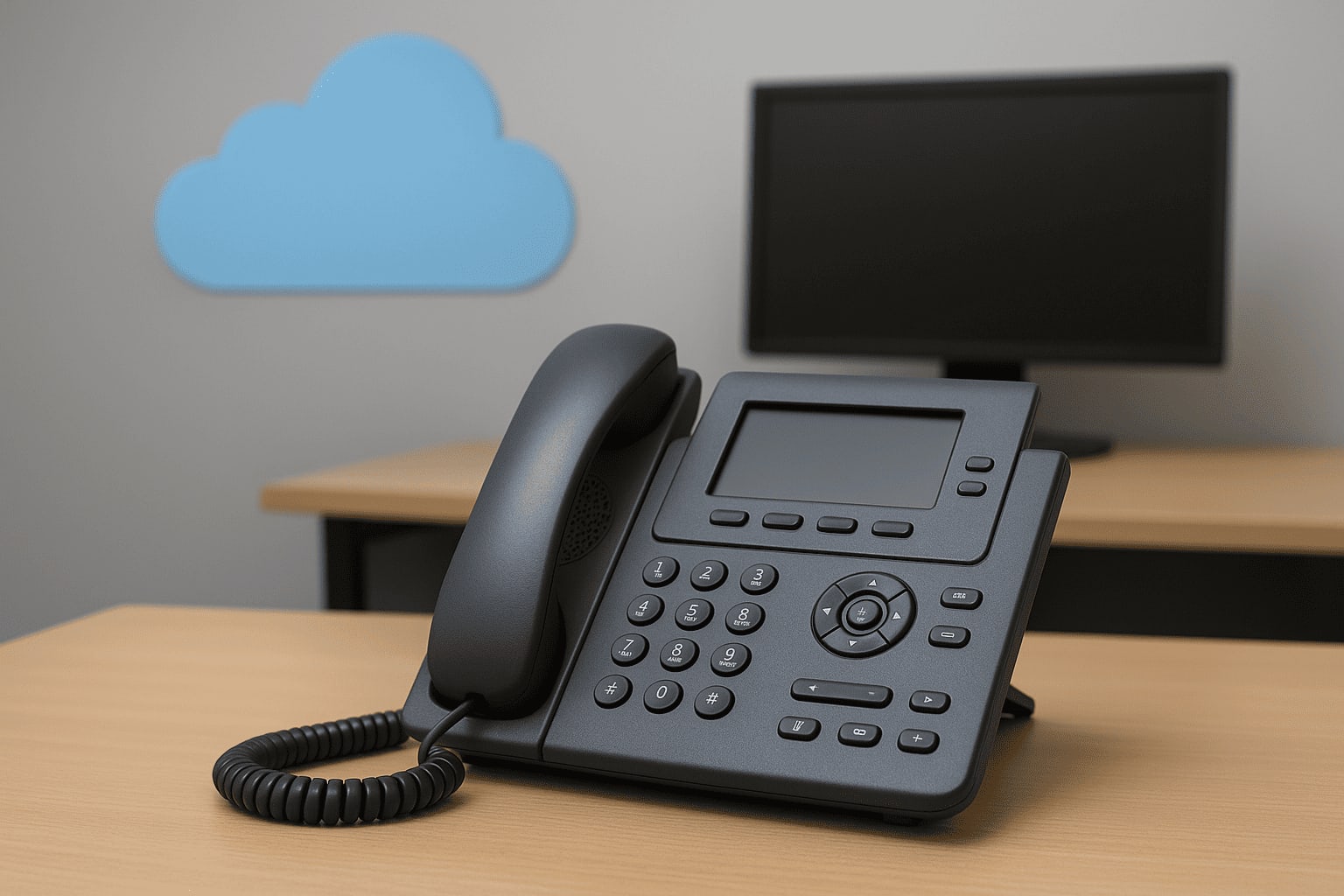As a telecommunications specialist, I've seen how VoIP benefits companies, but I've also witnessed the dangers of lax safety measures. Notably, 62% of organizations see data protection as their top challenge.
In this post, I'll examine the security features of different VoIP service providers, highlighting their strengths and identifying potential risks. It's about more than just calls; we need to safeguard the future of our communications.
» Which is more secure in the modern digital world? VoIP vs. landlines.
Overview of VoIP Security Concerns
VoIP, which transmits voice as digital signals over the internet, differs significantly from traditional circuit-switched telephony. This shift to internet-based communication introduces unique cybersecurity challenges.
Dangers like vishing (VoIP phishing), eavesdropping, and service outages can compromise your data integrity. Other VoIP security threats include:
- Denial of service (DoS) attacks: Overloading a VoIP network to disrupt service and block legitimate calls.
- Man-in-the-middle (MITM) attacks: Intercepting and altering communications between two VoIP users without them knowing.
- Malware and viruses: Infecting VoIP software with malicious software to steal data or disrupt services.
- Caller ID spoofing: Disguising a caller's identity by falsifying the recipient's caller ID number or name.
- Spam over Internet telephony (SPIT): Sending unsolicited bulk messages or calls over VoIP, similar to email spam.
- Call tampering: Degrading the quality of VoIP calls, often to harass or disrupt business operations.
But that doesn't mean VoIP phones aren't secure. To counter these hazards, many VoIP providers like RingCentral and Vonage now implement strong encryption, multi-factor authentication, and ongoing monitoring. These measures ensure you can communicate with clients in a safe and dependable online environment.
Note: If you encounter these security threats, report them promptly to the Federal Trade Commission (FTC) and the Federal Communications Commission (FCC). Doing so helps protect your own interests but also contributes to the broader effort to maintain a safe and secure telecommunications environment.
The Potential Impact on Organizations
You need to understand how security issues can affect your organization if you want to reduce the risks. VoIP problems can corrupt data, stop communications, and cause breaches, jeopardizing your company's operations.
For example, a single call can overload your system and block all other communication. You need to preempt this trouble and have measures in place so that you can quickly identify and resolve it.
Implementing alert systems ensures you're immediately aware of any jams. This way, you can take swift action to keep your communication lines clear and secure—whether it's rerouting traffic or investigating potential security breaches.
» Discover 10 gadgets and systems your business can't survive without.
4 Important VoIP Security Measures
Your VoIP system's security is only as robust as the measures you implement. To take the pressure off you, rely on your VoIP provider's specialists. They use specific strategies and tools to provide the highest level of protection against unauthorized access and other security risks, including:
Encryption
VoIP companies use the Secure Real-time Transport Protocol (SRTP) to encrypt any data transmitted during a VoIP call so your conversations remain private and secure. This encryption acts as a crucial defense against eavesdropping and data interception by converting your data into an unreadable and impenetrable form.
SRTP employs advanced encryption techniques, like the Advanced Encryption Standards (AES), to convert your voice data into secret codes so only the intended recipient can understand it. AES provides a high level of security for VoIP communications in the same way a password keeps your online accounts safe.
Authentication
Service providers must ensure that only the right people or devices join the communication party. To do this, they use Session Initiation Protocol (SIP) as a gatekeeper to control the start, middle, and end of your calls.
Think of SIP as a bouncer checking your digital ID card before allowing you to enter its restricted and secure communication club. Only those with the right security certificate can get access.
Firewall Protection
VoIP endpoints, like IP phones and softphones, face the risk of illegal access. Your VoIP provider can deploy a firewall to block unwanted users from entering your company's network. It monitors and filters voice traffic, detecting and thwarting any unauthorized access attempts.
After setting it up, you get a unique ID key and a VPN password, creating a double layer of security. This combination verifies your identity and encrypts your data, significantly enhancing the safety of your VoIP communications against potential cyber threats.
Regular Updates and Patch Management
Because VoIP security problems are constantly changing, you need to keep revamping and patching your systems. Now, with Unified Communications as a Service (UCaaS), your service provider schedules and manages all these updates.
This way, the process is streamlined, your communications stay safe, and you and your employees can focus more on core activities. UCaaS takes care of the tech side, so you don't have to worry about it.
» Which is better for your company? VoIP vs. UCaaS.
Maximize Your VoIP Security
VoIP is secure. In fact, 94% of small businesses have reported enhanced security after adopting cloud-based services, which includes VoIP solutions. However, this largely depends on both the technology used and how people utilize it.
A big part of keeping VoIP safe is employing the right features, like encryption, firewalls, and regular updates, which many service providers offer. But it's not just up to them. If you're using VoIP, you also need to be smart about security. This means understanding the risks and using your provider's protection tools effectively.
» Ready to cut the cord on your phone line? Check out our 10 best VoIP call center providers and solutions.
Kathleen Christie, a Top10 writer, specializes in call center development and telephony operations. She's skilled in Avaya provisioning, IP Telephony, Modular Messaging, Microsoft Suite, and Telecom Expense Management, along with Training, Leadership, Customer Service, and Problem Resolution.

